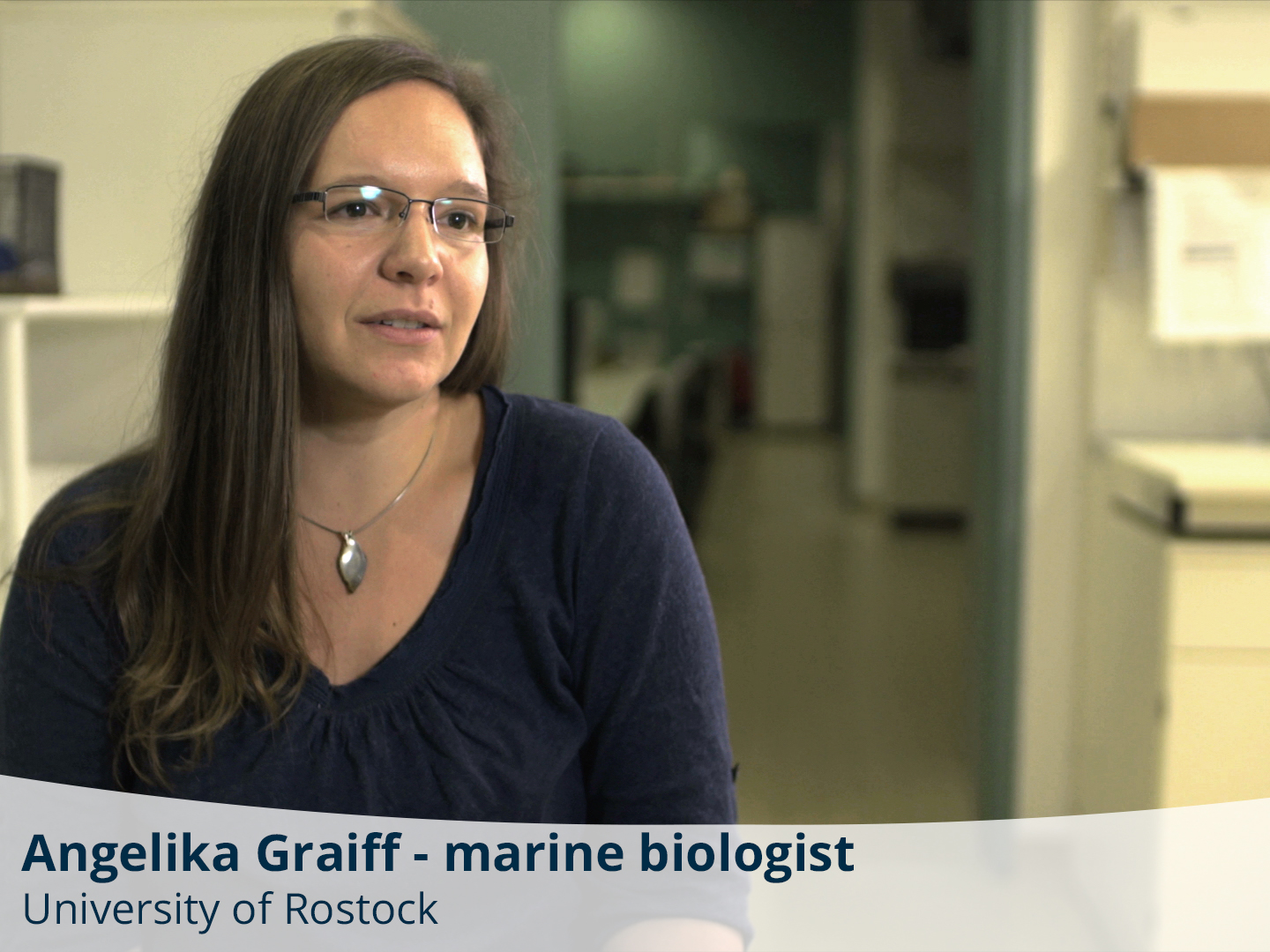Angelika Graiff
Bladderwrack, Fucus vesiculosus, provides a perfect basis for ecosystems in the Baltic Sea. Many other organisms thrive in the Fucus forests. Also fish lay their eggs there. “This is why we have to investigate the influence of climate change on this species of alga,” says Angelika Graiff, marine biologist at the University of Rostock.
For their experiments, the researchers use the Kiel benthocosms, twelve experimental tanks, each holding one and a half cubic meters of Baltic Sea water. In these tanks, bladderwrack and other algae, crustaceans and snails experience environmental conditions of the future. In addition to the carbon dioxide concentration and the temperature, also the nutrient concentration was increased.
“Initially, we presumed that Fucus would respond positively to the CO2 increase,” Angelika Graiff explains. “But what we then saw in combination with the other influences was that the temperature rise affected the bladderwrack so much more strongly that it died. Also the other organisms in the system were affected.“ If the species withdraws from the Baltic Sea as a result of climate change, also fish stocks and catch quotas will decrease.
